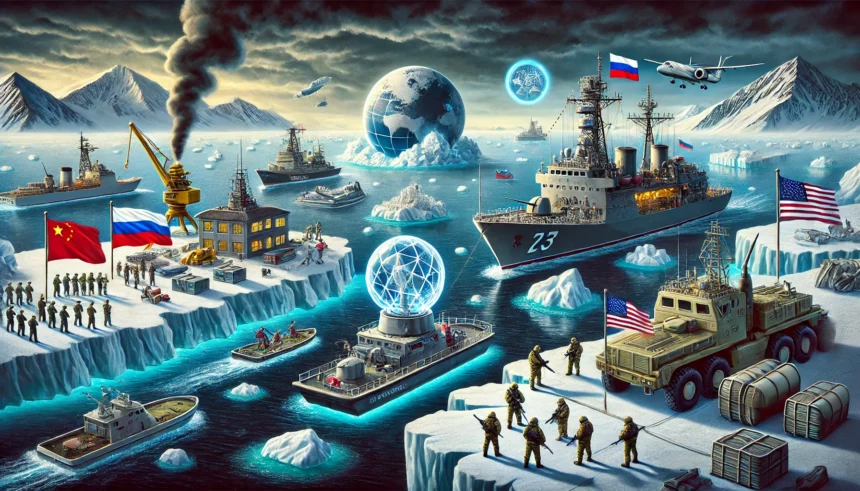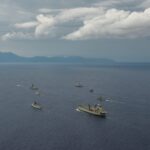Summary by Geopolist | Istanbul Center for Geopolitics:
The article examines the ongoing strategic competition in the Arctic, highlighting that despite attempts at stability, the opportunity for collaborative and sustainable development has diminished. Russia, with more than fifty percent of the Arctic coastline, has historically been a significant actor, with its rapport with the U.S. formerly shielding the region from extensive geopolitical strife. The balance altered significantly after Russia’s 2022 invasion of Ukraine, resulting in its exclusion from the Arctic Council and allowing Moscow to fortify relations with China and India.
China’s expanding influence in the Arctic, enabled by collaborations with Russia, poses challenges for the West, exemplified by initiatives such as the Northern Sea Route, which provides a critical maritime corridor. China’s Arctic identity encompasses research initiatives, highlighting its enduring regional ambitions. The essay emphasizes that Washington’s inability to modify its approach has allowed competitor nations to alter the geopolitical dynamics of the Arctic. The United States, currently navigating a “post-exceptionalist” Arctic era, finds it challenging to exert influence or oversee developments, resulting in unsolved security and economic issues.
The discourse underscores the intricacies of Arctic governance and environmental issues, cautioning that in the absence of substantive engagement, competition may intensify. The lack of unified U.S. leadership has allowed other global actors to emerge, diminishing Washington’s power. Reestablishing Arctic conversation and re-engaging Moscow may become a priority for the U.S., particularly in light of Chinese naval growth and Russia’s diplomatic strategies.
Read more here.







